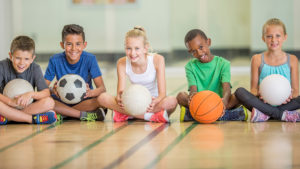
The benefits of youth sports and exercise far outweigh the risks, health experts say. And there are a number of things parents can do to help prevent injuries.
For starters, look for a sport or exercise program that’s a match for your child’s ability and interests, the U.S. National Institutes of Health suggests.
Enroll children in organized sports with properly maintained facilities. Make sure coaches are trained in first aid and CPR, and have a plan for responding to emergencies. Coaches should also be experienced in the proper use of equipment and enforce rules on equipment use, the agency advised in a news release.
Parents should know that some organized sports programs include adult staff who are certified athletic trainers who know how to prevent, recognize and provide immediate care for sports injuries, according to the NIH.
In addition, the agency offered the following tips:
- Children should always use proper safety gear for their sport. They should also know and follow the safety rules.
- Before and after exercise, warm-ups and cool-downs should be mandatory.
- Kids should have access to water or sports drinks, and should drink frequently to stay properly hydrated.
- Sunscreen and a hat (when possible) should be used to reduce the risk of sunburn.
If your child suffers a soft tissue injury (such as a sprain or strain) or a bone injury, the best immediate treatment is rest, ice, compression and elevation (RICE). Professional medical treatment is required for severe injuries such as fractures, joint dislocations, prolonged swelling, or prolonged and severe pain.
Despite the risk of injury, exercise and sports are important for children. Physical activity reduces the risk of obesity and diabetes, helps improve social skills and sense of well-being, and helps kids learn team skills, the national health experts explained.
More than 38 million U.S. children and teens engage in organized sports each year, and many more participate in informal recreational activities, the NIH release noted.
 /a>
/a>
 /a>
/a>
 /a>
/a>